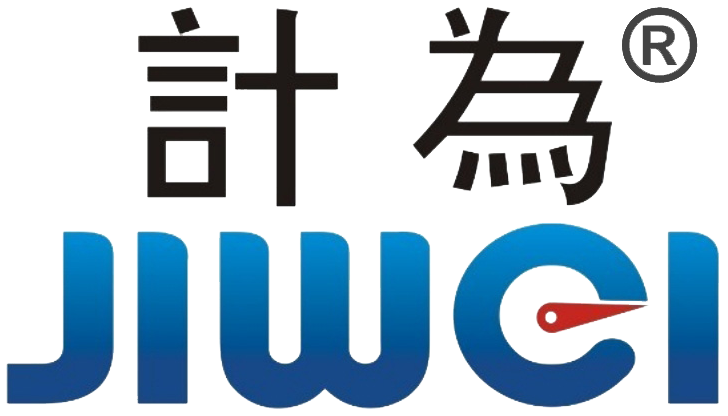How to Use Radar Level Meter Data for Predictive Maintenance
In modern industrial operations, equipment failures and unplanned downtime not only disrupt production but also pose safety hazards and financial losses. Traditional preventive maintenance relies on fixed inspection schedules and human judgment, which can lead to misjudgments and inefficiencies. With the rise of industrial automation and smart manufacturing, Predictive Maintenance (PdM) has become a key strategy to improve productivity and reduce operational costs. Radar level meters, particularly 80GHz high-frequency smart radar level meters, play a vital role in predictive maintenance by providing reliable data and intelligent analysis for industrial enterprises.
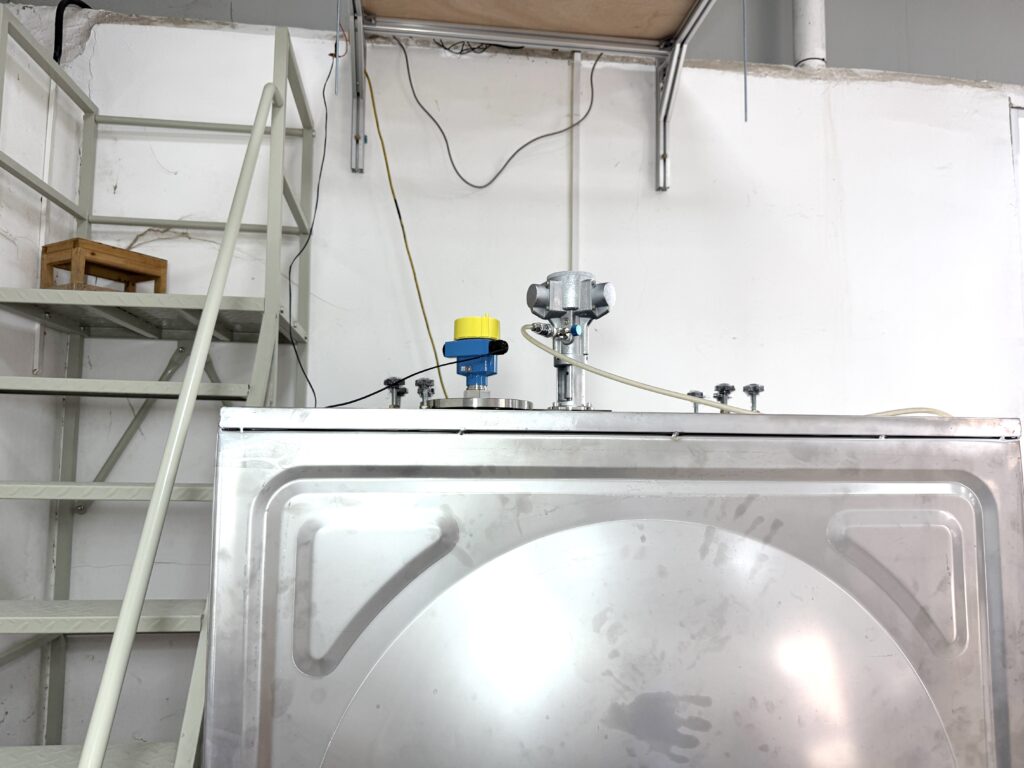
1. Core Concepts and Benefits of Predictive Maintenance
Predictive maintenance leverages real-time monitoring of equipment status, historical data analysis, and trend forecasting to enable early fault detection and optimized maintenance decisions. Key benefits include:
- Reducing unplanned downtime: Early detection of anomalies minimizes production interruptions.
- Optimizing maintenance costs: Maintenance is performed only when necessary, saving labor and materials.
- Extending equipment lifespan and reliability: Maintenance schedules are optimized to enhance equipment longevity.
- Improving production safety: Early warnings prevent hazardous conditions, protecting personnel and the environment.
Compared to traditional time-based maintenance, predictive maintenance is smarter, more efficient, and better suited to complex industrial conditions.
2. The Role of Radar Level Meter Data in Predictive Maintenance
Real-Time Level Monitoring
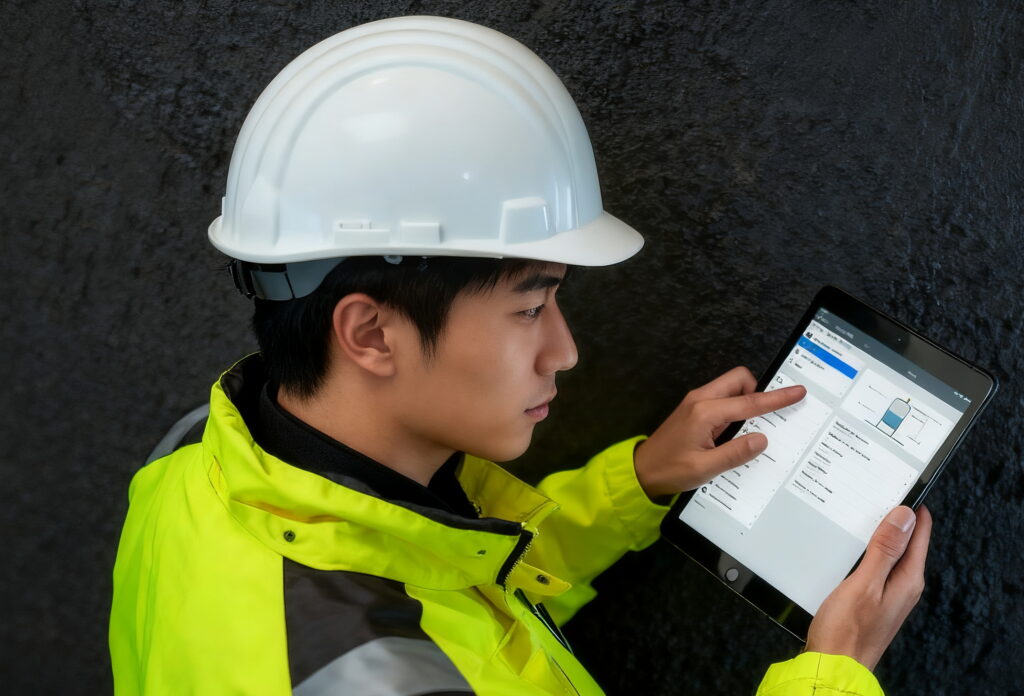
Radar level meters provide non-contact, high-precision, continuous level measurement, critical in chemical tanks, food storage, and bulk material silos. Continuous monitoring of liquid or material levels allows instant detection of operational anomalies such as pump blockages, irregular feed, or tank leaks. Comparing current data with historical records enables rapid identification of abnormal trends, providing a clear basis for predictive maintenance decisions.
Intelligent Echo Recognition and Anomaly Detection
Modern smart radar level meters, such as Jiwei JWrada® 80GHz series, feature proprietary intelligent echo recognition algorithms capable of distinguishing real level signals from interference (e.g., foam, steam, or dust). This ensures accurate measurements and can detect unusual fluctuations. For instance, frequent irregularities in echo signals may indicate internal tank equipment malfunctions or changes in material properties. Operators can set threshold alarms based on radar data for early fault warnings.
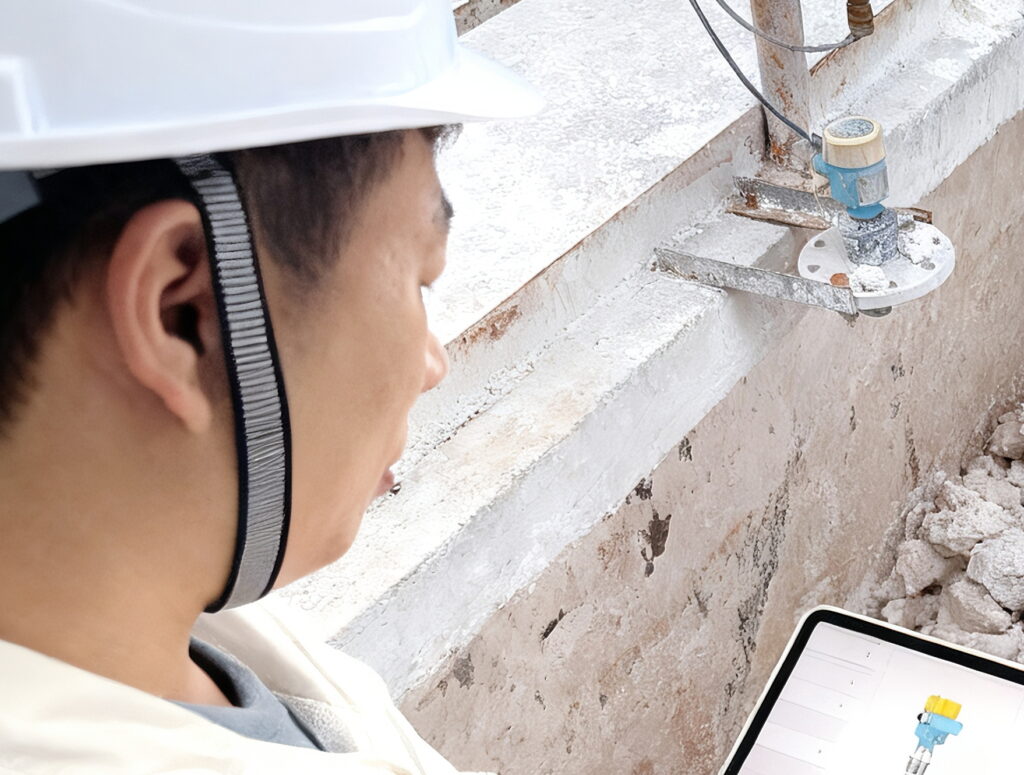
Historical Data Storage and Trend Analysis
Radar level meters transmit real-time data via industrial protocols such as HART or Modbus, or through IIoT platforms, to cloud-based or local databases. Historical data analysis enables identification of potential maintenance needs. For example, gradually fluctuating pump levels may indicate valve wear or feed pipe obstruction, while repeated anomalies in silo levels may signal pneumatic or mechanical equipment issues. Data modeling and trend analysis allow companies to schedule maintenance scientifically rather than relying on fixed schedules or manual experience.
Integration with Industrial IoT Platforms
Modern radar level meters can seamlessly integrate with IIoT platforms, enabling centralized monitoring and analysis of multiple tanks and devices. Operators can view real-time levels, alarm logs, and trend analysis on mobile or desktop devices, while automatically generating maintenance recommendations or predictive reports. This data-driven approach significantly improves equipment management efficiency, making predictive maintenance a measurable and manageable intelligent process.
3. Industry Applications
Chemical Industry: Acid Tank Predictive Maintenance
Acid storage tanks in chemical plants are susceptible to corrosion and leaks. Using 80GHz radar level meters for real-time level monitoring combined with historical data analysis allows early detection of pump failures, valve blockages, or abnormal level changes. Predictive maintenance reduces manual inspections and minimizes safety risks caused by equipment failures.
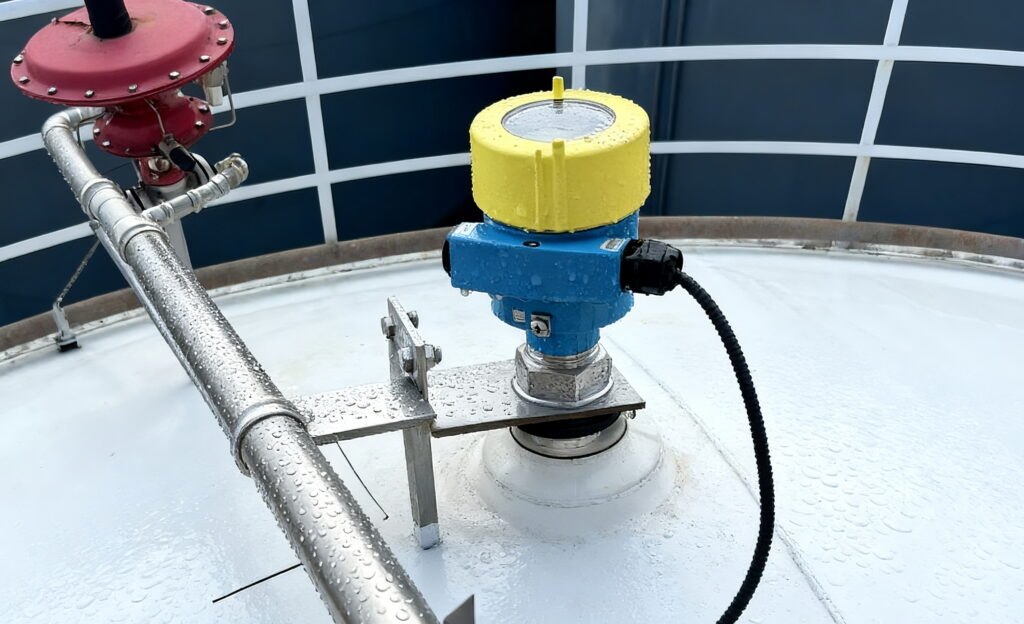
Food & Beverage Industry: Chocolate and Coconut Juice Tanks
Foam in food production often disrupts level measurement, making traditional instruments unreliable. Using smart radar level meters, operators can monitor real-time level fluctuations, detect potential pump or pipeline blockages in advance, and schedule maintenance proactively, ensuring continuous production and product quality.
Metallurgy and Cement: High-Dust Silos
High-dust silos in metallurgy and cement industries challenge conventional level measurement instruments. Radar level meters with strong anti-interference capabilities can continuously collect data and identify issues such as silo blockages, transport anomalies, or scraper wear. This enables predictive maintenance, improving production efficiency while reducing manual inspection risks.
4. Data-Driven Maintenance Optimization Strategies
Threshold Alarms and Smart Alerts
Dynamic threshold models based on level data enable automated alerts. When fluctuations exceed thresholds, the system immediately notifies maintenance teams, preventing prolonged exposure to risk conditions.
Trend Forecasting and Maintenance Planning
Statistical analysis of level changes and equipment status, combined with predictive algorithms, can forecast potential fault windows. Enterprises can plan maintenance schedules accordingly, reducing emergency downtime and repair costs.
Human-Machine Collaboration for Decision Efficiency
Radar level meters provide precise data that, when combined with expert human analysis, supports optimal maintenance decisions. This human-machine collaboration ensures maintenance is both scientific and flexible while enhancing operator skills and value.
5. Trends and Future Outlook
- High-Frequency and Smart Radar Technology: 80GHz and higher radar with intelligent algorithms have become mainstream, offering high precision and strong anti-interference performance for predictive maintenance.
- Self-Developed Software and Iterative Upgrades: Jiwei radar level meters feature proprietary software copyrights, enabling remote upgrades and algorithm iteration to maintain technological leadership.
- Digitalization and Industrial Connectivity: Radar data can integrate with cloud and IIoT systems for remote operations, smart alerts, and data-driven decision-making.
- Localized Service and Rapid Delivery: Jiwei’s nationwide service network ensures fast response and on-site support, reinforcing predictive maintenance capabilities.
6. Conclusion
Using radar level meters for predictive maintenance enhances equipment reliability and production continuity while significantly reducing labor costs and safety risks. Through real-time monitoring, intelligent echo recognition, historical trend analysis, and IIoT platform integration, industrial enterprises can manage maintenance cycles scientifically and achieve data-driven smart factory operations. High-performance Jiwei radar level meters, with proprietary software, intelligent algorithms, and rapid service, are emerging as a strong alternative to global high-end brands, promoting the transition from reactive to predictive maintenance.
Key Takeaways:
- Radar level meters provide real-time, high-precision data for predictive maintenance.
- Intelligent algorithms and trend analysis detect potential equipment faults early.
- Data-driven approaches reduce manual inspections, lower costs, and improve safety.
- Jiwei radar level meters’ proprietary software and rapid service offer reliable, cost-effective solutions for industrial enterprises.
